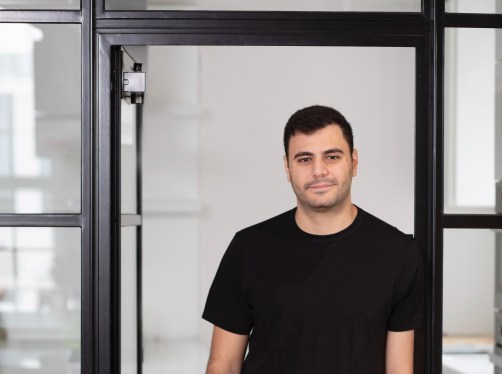Bilal Abu-Ghazaleh had just moved to London a few days before our call, splitting his time between there and Dubai. After nearly a decade in the United States, including a period at Scale AI, he is bringing that experience to his next venture. This new company is 1001 AI, a firm creating AI infrastructure for critical industries across the Middle East and North Africa.
The startup recently raised a nine million dollar seed round led by CIV, General Catalyst, and Lux Capital. Other backers include global and regional angels such as Chris Ré, Amjad Masad of Replit, Amira Sajwani of DAMAC, Khalid Bin Bader Al Saud of RAED Ventures, and Hisham Alfalih of Lean Technologies.
Abu-Ghazaleh said his two-month-old company promises to cut inefficiencies in high-stakes sectors like aviation, logistics, and oil and gas through an AI-native operating system for decision-making. He stated that just looking at the top three or four industries like airports, ports, construction, and oil and gas, they see more than ten billion dollars in inefficiencies across the Gulf alone. He noted that this is just in markets like the UAE, Saudi Arabia, and Qatar, and that even without counting other sectors, these industries represent a massive opportunity.
For example, any efficiencies found in airport operations can create compound savings, impacting both the airport and its airlines. He also said that nine out of ten of the region’s mega-projects fall behind schedule or go over budget, meaning even small increases in efficiency can save these projects significant money.
1001 AI hopes to sell its decision-making AI to new projects after it launches its first product, which is scheduled by year’s end. The startup is reportedly in talks with some of the Gulf’s largest construction firms and airports.
Born and raised in Jordan, Abu-Ghazaleh moved to the United States for college and later joined the Bay Area startup scene. After an early product role at the computer vision startup Hive AI, he joined Scale AI in 2020 during its rapid expansion. There, he rose through the ranks from operations associate to director of the company’s GenAI operations, scaling its contributor network responsible for annotating and labeling training data.
He was later set to join Scale’s international public sector unit, which builds AI solutions for foreign governments. But when Meta invested in Scale, the company shifted direction, and Abu-Ghazaleh left to found 1001 AI.
The Gulf, particularly the UAE and Saudi Arabia, has become one of the world’s most aggressive adopters of AI. From sovereign-backed ventures like G42 in Abu Dhabi to Saudi Arabia’s National Center for AI, governments are investing billions to build local AI infrastructure and attract global talent.
For Abu-Ghazaleh, that mix of appetite, budget, and urgency makes the region a perfect testing ground. But unlike most AI startups focused on software or enterprise tools, 1001 targets real-world physical operations. The company’s investors believe the potential is even greater in the Middle East for this kind of application.
One investor stated they are extremely bullish on AI that solves physical-world problems at scale, such as optimizing how airports turn around flights, how ports move cargo, and how construction sites operate. They added that the MENA region offers significant potential in this space with mission-critical infrastructure that is under-digitized and ripe for transformation.
While the product is still under development, Abu-Ghazaleh offered a glimpse into how it works. The system pulls in data from a client’s existing software, models operational workflows, and issues real-time directives to improve efficiency.
He explained that today, an operations manager might manually call someone to reroute a fuel truck or send a cleaning crew to another gate. With their system, that orchestration happens automatically. The AI orchestrator uses real-time data to reroute vehicles, reassign crews, and adjust operations without human intervention.
Unlike most early-stage AI startups that target specific industries, Abu-Ghazaleh says 1001 can be accessible to many because operational flows across industries often look the same. That model borrows from the rigor of consulting and contract work. The team spends weeks embedded with clients, running co-development sprints to tailor its systems to each operation’s realities.
One managing director commented that Bilal is building the decision engine to automate that complexity with Scale-proven execution and the regional gravity to make 1001 the platform this market builds on.
The new funding will accelerate early deployments across aviation, logistics, and infrastructure, while fueling recruitment in engineering, operations, and go-to-market roles as it grows its team across Dubai and London. 1001 AI plans to launch its first customer deployment by the end of the year, starting with construction. Over the next five years, Abu-Ghazaleh wants the company to become the Gulf’s go-to orchestration layer for these industries before expanding globally.

